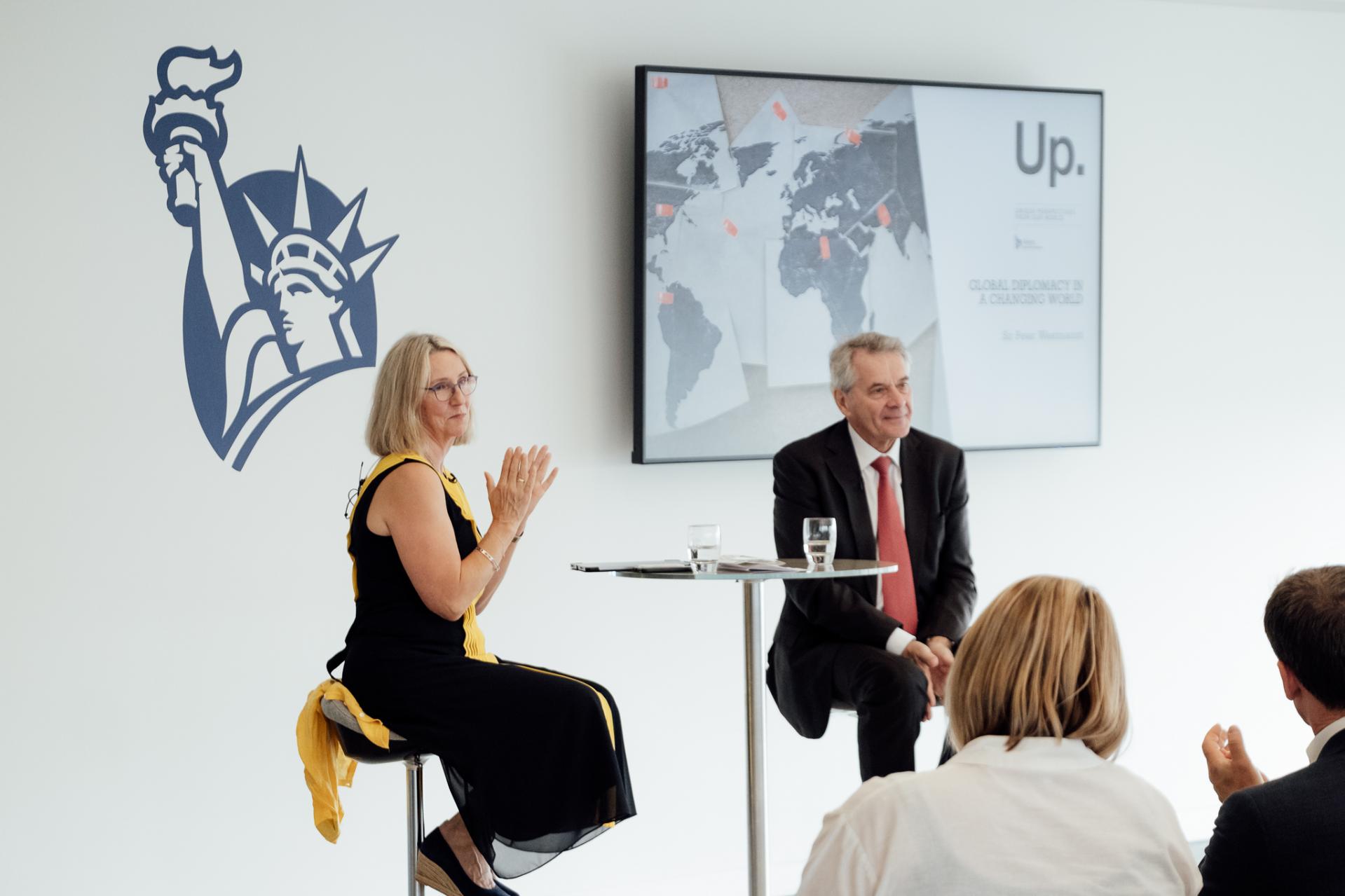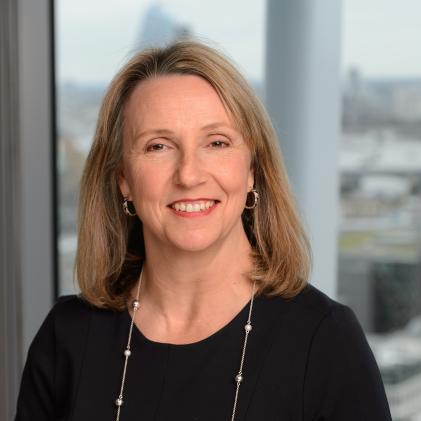Sir Peter Westmacott is one of Britain’s most distinguished diplomats, navigating international affairs at the highest levels for more than four decades. Serving in Europe, the US and the Middle East, his work has taken him into the heart of global diplomacy. Dealing directly with world leaders and participating in critical negotiations, over the span of his career, he has witnessed key geopolitical events that have shaped the modern era – from the final years of the Cold War to the rise of globalisation and digital diplomacy.
We had the pleasure of hosting Sir Peter at our recent Unique Perspectives event: Global Diplomacy in a Changing World. Drawing on his vast experience, he examined broad-ranging topics such as the current geopolitical situation, transatlantic relations and the complex realities of modern diplomacy. There was much to digest following his talk, which enthralled the audience with his analysis of how political leadership and diplomacy operate at times of great uncertainty.
His insight into the precarious state of geopolitics prompted several observations about how these changes are reshaping politics, corporations and societies and the increasingly important role insurance plays in preserving all of them.
Diplomacy and leadership
At its core, diplomacy is the art of managing global relationships through dialogue, negotiation and collaboration. It advances its own interests while fostering peaceful and constructive relations with others and this concept resonated with how businesses, particularly insurers must operate. Listening to Sir Peter describe how global political leaders are grappling to maintain strategic alliances and manage shifting power dynamics, it struck me how alliances, even those that have existed for decades, are actually very fragile and fluid. It also served as a timely reminder that diplomatic or soft skills, while often underappreciated, can actually make all the difference in fostering cooperation needed to achieve positive outcomes.
Leadership versus management
One interesting distinction that emerged from the discussion was the difference between leadership and management, which Sir Peter spoke about in relation to the varying governing styles of different political leaders. Management is about structure and execution while leadership is about vision and influence. One is tactical – focussed on processes and systems to keep things running smoothly – the other is strategic and much more concerned with driving change to achieve long-term goals. While visionaries can also be great tacticians it’s unusual, with visionary leaders often disinterested in day-to-day execution and managers loath to see thoughtfully designed processes being bulldozed.
Fragile alliances
Sir Peter discussed at length those world leaders exhibiting traits associated more with visionaries than statesmen and who are seemingly unmoved by diplomatic efforts. This prompted the question from the audience: “Is diplomacy a dying art, or is it under appreciated in the modern world?” While acknowledging the considerable challenges, he argued that diplomacy is not dying but evolving, with informal, honest advice to political leaders and sharp negotiating ability on key issues remaining critically important. Again, the thought about the fragility of both political and commercial alliances came to mind and how once trust starts to erode, international relationships can quickly fray and become purely transactional.
This is a direct challenge to insurers, particularly those with multinational clients across politically sensitive regions. Maintaining their trust requires resolve, a clear view of ‘ground truth’ through high quality risk intelligence, underwriting skill and a willing risk appetite. The sudden recalibration of market appetite and available capacity following events in Israel on October 7th is just one example of this. While many insurers exited the market or paused underwriting, others chose to double down on client engagement, held their nerve and continued to support them. Experiencing geopolitical changes that are so broad, deep and occurring so rapidly, even knowing where to start in getting a handle on them is a challenge. However, Sir Peter’s insistence on the enduring value of diplomacy, the vital role it plays and why great efforts should be exhausted to maintain it inspired a further perspective about the enduring value of insurance. If we as an industry can find ways to continue to provide security and certainty to our clients while seemingly everything around us is changing, this will not only help tie those clients to us for a very long time but could potentially reset public perception about insurance and the enduring, world-sustaining value it provides.
A transitioning world
Before the event, I spoke with Sir Peter and mentioned a quote that encapsulates the turmoil of geopolitical transition by Italian philosopher Antonio Gramsci. While imprisoned by Mussolini’s fascist regime in 1930, he wrote: “The old world is dying, the new world struggles to be born, now is the time for monsters.” Though often thought to signal despair, it is also a call to vigilance and resistance. While it is partly saying ‘hold your nerve’ it is more than that; it diagnoses a political moment, which upon recognising it requires action, leadership and imagination as, if "the new cannot be born," it needs help through ideas, organisation and commitment. While it is perhaps unpalatable to consider taking a stand in peace time, given the gravity of ongoing events, this paints the role and responsibility of insurance and its society and civilisation-preserving capabilities in a whole new light.
The world is undoubtedly undergoing a period of great transition on many levels – politically, ideologically, technologically, economically and socially. As many things change, integrity, dependability, consistency and trust have arguably never been more important. As an industry expert in foreseeing, mitigating and managing risk we are uniquely placed to rise to these challenges, reshape public perception and play a leading role in preserving and shaping society for the future.

